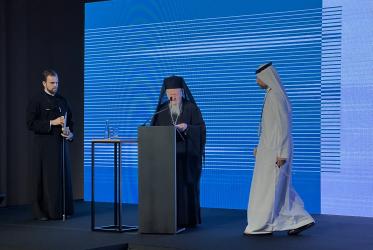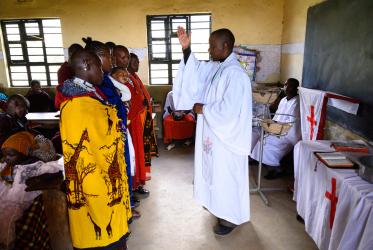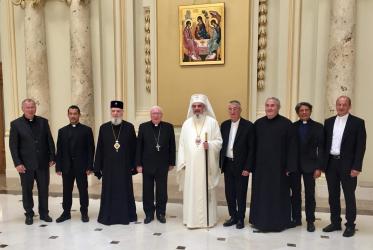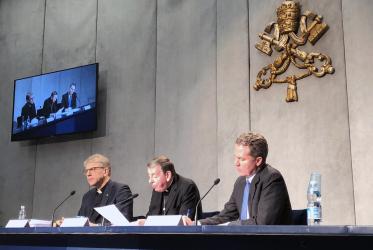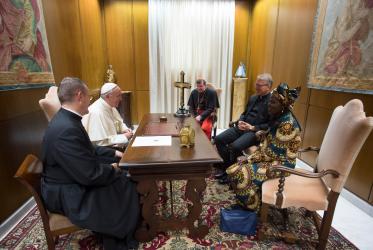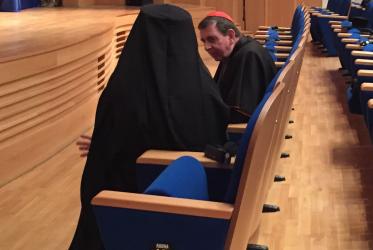Displaying 1 - 20 of 20
Christians in Africa face increasing violent attacks, repression
23 December 2020
How can you help refugees?
11 October 2018
Joint WCC-Catholic working group concludes plenary meeting
07 September 2018
Catholics, WCC map future together after papal visit to Geneva
05 September 2018
Roman Catholic-WCC group focuses on peace-building, migration
19 September 2017
Pope Francis, WCC leadership meet in Rome
24 August 2017
Catholic-WCC group pursues new mandate
13 April 2016
Cardinal Kurt Koch tells WCC News: We have to deepen our solidarity
05 November 2015
“European solidarity must be strengthened”
29 October 2015
Protection of uprooted people is integral to religions
14 December 2012


